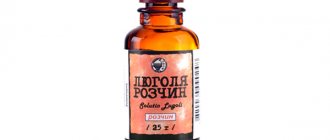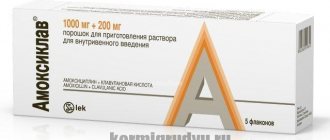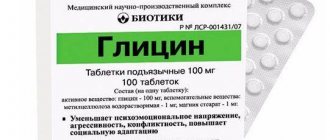During the period of aggravation of the epidemiological situation, no one is immune from influenza. This is especially true for nursing women, whose immunity is not fully restored after pregnancy. If a young mother breastfeeds, then she is responsible not only for her body, but also for the body of the newborn baby.
If infection with influenza cannot be avoided, it is necessary to familiarize yourself with methods of treating the disease and new conditions for feeding the child.
Is it possible to breastfeed
If a seasonal flu epidemic is coming, young parents are advised to take care of disease prevention. If infection has occurred, the primary task for the mother is to select safe treatment methods.
Some medical specialists are inclined to believe that it is necessary to temporarily interrupt lactation until the nursing woman fully recovers. The reason for this is the high probability of infection of a newborn from a sick mother. The need to suspend lactation can be debated, since by the time the first symptoms of the disease appear, the child manages to receive a dose of the virus from the mother.
During this period, breast milk is more important than ever, since it contains valuable antibodies that provide support in the fight against infectious pathogens. If a woman could not avoid catching the flu, it is recommended to continue breastfeeding. To reduce the likelihood of infection of a newborn baby, a woman must wear a gauze or cellulose bandage before each feeding.
The danger of influenza lies in its consequences, therefore, if a characteristic clinical picture appears, a nursing mother should consult a medical specialist for advice.
Features of treatment
The approach to the treatment of influenza during breastfeeding should be thoughtful and balanced. Most medications are not recommended for use by nursing and pregnant women. As antiviral therapy, nursing mothers are allowed to use so-called interferon inducers (Grippferon, Viferon). These drugs can be taken not only for the purpose of treatment, but also for prevention in the midst of an epidemic of the disease.
If a nursing woman has a fever, it is recommended to use paracetamol-based drugs as an antipyretic. It is also acceptable to use products containing ibuprofen.
To facilitate nasal breathing, it is not recommended to use vasoconstrictor drops and sprays. To treat a runny nose, it is necessary to use rinsing and irrigation of the nasal cavity with saline solutions. If nasal congestion interferes with normal functioning, then vasoconstrictor drops are best used before bedtime, for no longer than 3 days in a row.

Extremely dangerous medications during the lactation period
Using a medication that is incompatible with breastfeeding. Medicines that do not contain clear instructions regarding the use of the drug during the period when active feeding occurs are contraindicated.
Taking an intentionally increased dose of a prescribed medication to speed up the treatment process. Do not forget that many medications are prescribed to relieve symptomatic signs without affecting the source of the disease itself. An increased content of drug elements in mother’s milk can easily cause a deterioration in the baby’s well-being.
Read also:
Adnexitis during breastfeeding: etiology, diagnosis, treatment
Treatment methods
If the disease is not severe, then a nursing woman is recommended to use traditional medicine methods that do not affect the child’s body through breast milk. During lactation, a woman can use the following treatment methods:
- Taking Aflubin. From the moment the first symptoms of the disease appear, care must be taken to stimulate the body's defenses. The natural drug Aflubin stimulates the production of antibodies to pathogens of viral and bacterial diseases.
- Tea with the addition of natural honey and lemon. This product contains a loading dose of vitamin C, which helps improve immunity. Eating lemon and honey is permissible only in the absence of allergies, both in mother and child.
- Tea with viburnum, currant and raspberry jam. These berries contain natural antibiotics and antiviral active ingredients. You can drink the jam with tea or add it to a drink.
- Milk with honey and butter added. This remedy effectively combats sore throat and dry cough. Milk is recommended to be consumed warm before bed.
- For symptomatic treatment of influenza during lactation, you can warm your feet in warm water with the addition of mustard powder. For dry cough, inhalations from decoctions of medicinal herbs are useful. You can carry out inhalations and warm your feet in warm water only after your body temperature has normalized.
- If a young mother is bothered by a sore throat, then she is recommended to gargle with the addition of sea salt and soda. To prepare the solution, you need to dissolve 0.5 tsp. salt and ¼ tsp. baking soda in 300 ml of boiled warm water. As an alternative, you can use decoctions of medicinal plants (calendula and chamomile flowers). The frequency of rinsing is 3-4 times a day. Eucalyptus essential oil (2-3 drops), which has bactericidal properties, can be added to rinsing solutions.
- You can reduce a high fever without using antipyretics by wiping your body with plain water. It is recommended to take water at room temperature, avoiding hypothermia. After this, you should put a cold compress on the forehead area.

Sore throat during breastfeeding
Sore throat or tonsillitis is an infectious disease that affects the tonsils. This rather serious disease is usually caused by a streptococcal infection.
Symptoms
The main symptoms of a sore throat are chills, weakness, fever up to 38 - 39? C, headache, sore throat, which radiates to the sides of the neck and ear. The lymph nodes under the lower jaw enlarge, become dense and painful. Inflamed tonsils have a bright red color, sometimes with a white coating or pustules.
Treatment
If a woman gets a sore throat while breastfeeding, there is no need to wean the baby off the breast. Even before the mother displays the first symptoms of the disease, the baby receives antibodies to it through breast milk.
In the treatment of angina, local and systemic medications are used. Topical products include irrigation sprays and lozenges. Most often, nursing mothers are prescribed Givalex, Stopangin, Ingalipt, Strepsils, Decathylene. Systemic drugs in the treatment of this disease are usually antibiotics.
There are medications that can be taken to treat sore throat while breastfeeding. The main groups of such antibacterial agents can be distinguished:
- 1st generation cephalosporins – Cephapirin, Cefazolin, Cephalexin;
- 2nd generation cephalosporins – Cefotiam, Cefsulodin, Cefuroxime;
- penicillins – Amoxiclav, Amoxicillin, Ampicillin;
- macrolides – Sumamed, Azithromycin, Erythromycin, Clarithromycin;
- fluoroquinolones – ofloxacin, Moxifloxacin;
- tetracyclines – Doxycycline, Tetracycline;
It is very important to treat a sore throat in a timely manner, as it can lead to serious complications.
4.2857142857143
4.29 out of 5 (14 Votes)
No person is immune from getting the flu. Colds are transmitted very easily: through the air, through dirty hands and household items. The incubation period and its absorption in the human body lasts from several hours to three days. After this, you can feel all the “delights” of the disease: high fever, pain in the eyes, tactile irritation, migraine and general weakness.
The incubation period may take several hours
Throughout the entire gestation period, a woman’s likelihood of contracting a viral infection increases significantly. The risk increases due to a decrease in the body's immune defense. The disease is especially dangerous in the first trimester
, because it is then that the basic systems of the unborn child are laid. If a pregnant woman gets the flu before giving birth, this also complicates the situation. To give birth naturally, a woman needs a lot of strength, which the body mercilessly spends on fighting infection. In particularly severe cases, emergency delivery may be required.
Flu before childbirth complicates the situation
The problem does not go away after the baby is born.
.
While in the maternity ward, a woman may be isolated in a box. At the same time, the baby is brought to her only for feeding. For these 10-30 minutes, the patient is forced to remain wearing a protective mask. Doctors can do things differently. If the illness is mild or during the recovery period, the child is given to the mother, as is usually the case. This is where many women ask themselves: is the flu transmitted through breast milk
? Mothers doubt what will be better for the baby - formula or natural feeding.
Is the flu transmitted through milk through feeding?
To keep your newborn baby as safe as possible, you need to have an idea about the benefits of breastfeeding and the viral infection itself. Influenza is an infectious disease that is transmitted by airborne droplets. A fragile child's body, which does not currently have its own immunity, will most likely become infected. How to prevent this?
If you ask your doctor whether the flu is transmitted through breast milk, you may not get a definitive answer. The flu, settling in a woman’s body, forces the immune system to work. Lymphocytes and leukocytes create a barrier to the multiplying virus and secrete antibodies. In its processed form, the flu passes to the child through breast milk, creating the so-called light vaccine effect. Together with it, the mother transfers to the baby the protective substances produced by her body directly for this infection.
Prevention
Young mothers are strictly prohibited from self-medicating, as uncontrolled use of medications can harm the baby. To prevent the flu, follow these tips:
- Ventilate the living space daily and carry out wet cleaning.
- Limit visiting public places for the entire period of the height of the disease epidemic.
- Take interferon inducers to create anti-influenza immunity in the body.
- Pay attention to your diet, which should contain animal protein, fresh fruits, vegetables and juices. Smoking and drinking alcohol is strictly prohibited.
- Take multivitamin complexes containing vitamin C and other beneficial components.
- Avoid hypothermia. For this purpose, you need to dress in accordance with the temperature and weather conditions.

Breastfeeding mothers do not need to be vaccinated against the influenza virus.
This procedure is performed on people at risk of developing severe complications, diabetics and the elderly. If a young mother is at risk, it is recommended to get vaccinated. Preventive flu vaccines do not have a negative effect on the child's body. After administration of the drug, a woman may feel a slight discomfort, which goes away 1-2 days after vaccination against the influenza virus. Subscribe to our VKontakte group











